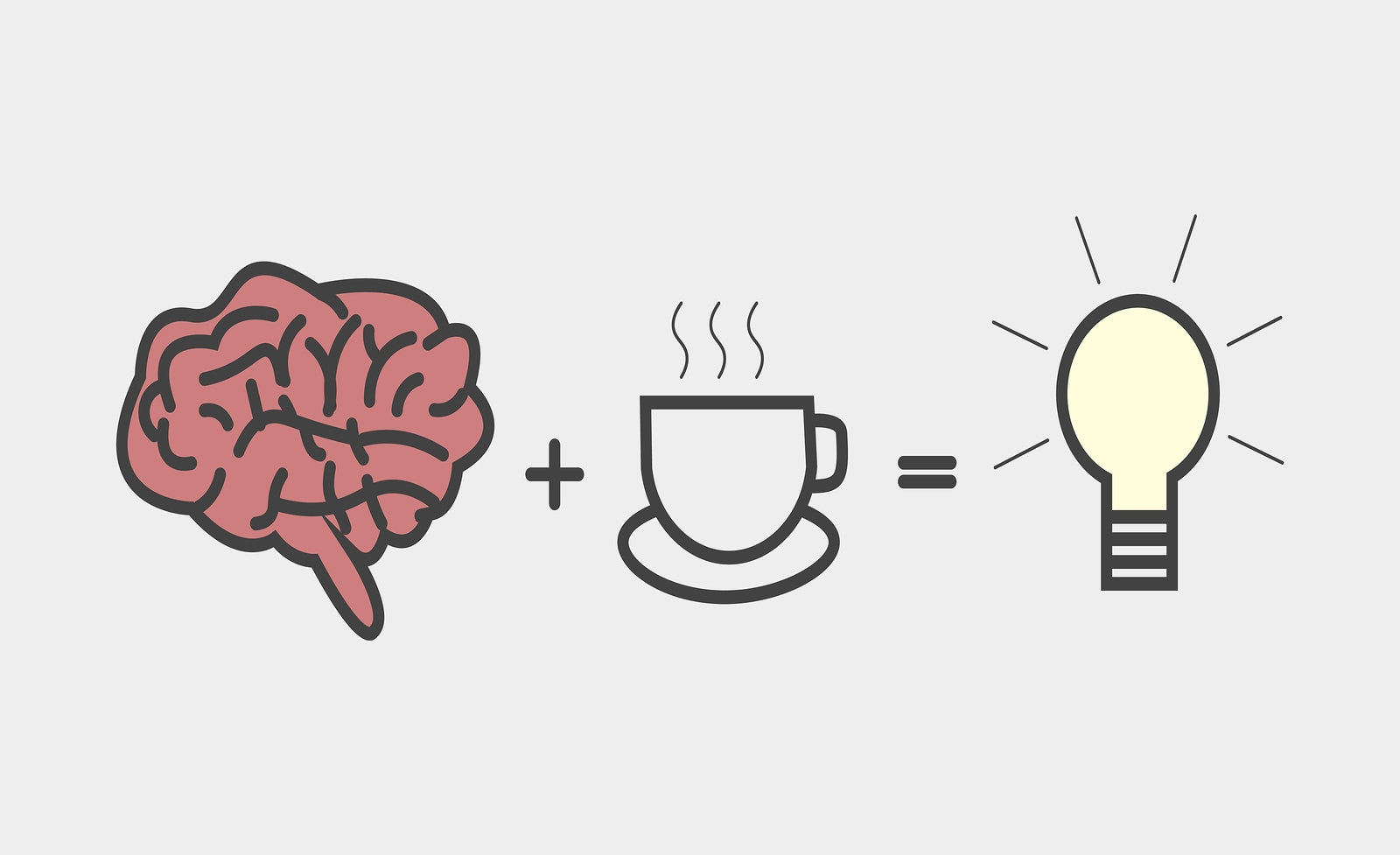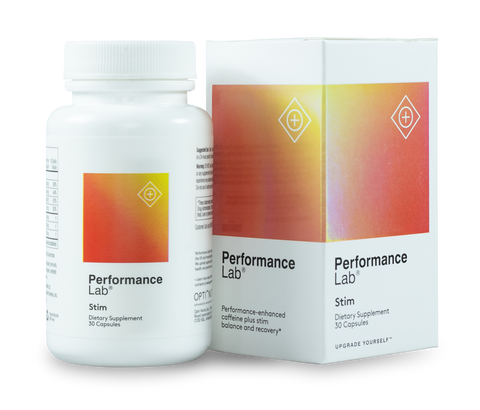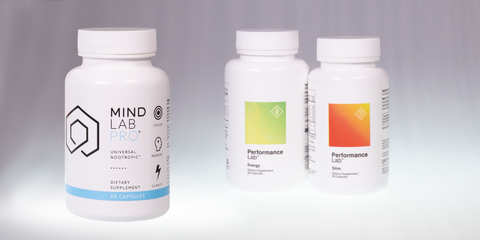Does Caffeine Help or Harm Memory Performance?
Increasingly, though massively popular, caffeine has become a bit of a guilty pleasure.
“Guilty” because many of us suspect that caffeine’s ability to make us feel this good so easily is actually not good for our health at all.
What’s more, the caffeine energy crash ultimately doesn’t feel good, so there’s also that.
But when it comes to Caffeine and Memory, there do seem to be cognitive enhancement benefits to taking caffeine under certain circumstances.
Even better, with the right source of caffeine, you can do boost much more than your memory performance.
In this article, we cover the memory-related advantages of taking caffeine, as well as the best caffeine supplement for boosting cognitive performance.
The Beginner’s Guide on Caffeine and Memory
Coffee, tea, energy drinks—caffeine comes in various, and most of us are likely familiar with all of them.
Naturally, some of those forms are healthier than others, whereas others should be avoided entirely (e.g., energy drinks).
Here, we’re primarily focusing on caffeine, the compound, and not necessarily caffeine’s various delivery forms.
However, before reviewing how caffeine works, let’s first address what we mean when as say “memory.”
The Different Types of Memory
Typically, when we think of “memory,” we think of our ability to remember little factoids or events of the pasts.
Memory, in this sense, is conceptualized as a sort of data bank (literally manifested in the brain’s hippocampus) full of information that, as we age, springs a few leaks.
However, memory may also refer to our ability to keep current events or ideas in our head right now. Our immediate attention span, so to speak, is reliant on memory.
In fact, roughly speaking, there are three types of memory.[1]
Those three types being:
Long-Term Memory
Think of long-term memory as “permanent” memory. This sort of memory theoretically has no expiration date.
Long-term memory refers to the type of memory that stores a limitless expanse of information for days, years, decades—in some cases, entire lifetimes—per person.
Important friendships and profound life events fill our long-term memory.
Short-Term Memory
Short-term memory differs from long-term memory in terms of duration and capacity.
Unlike the limitless capacity of long-term memory, the lifespan of a short-term memory is drastically shorter.
Likewise, short-term memory can only hold a limited set of information at a time.
For example, memorizing a phone number just long enough to input the numbers in your phone, after which the memory goes away.
However, repeating the number over and over for a long enough time may cement them into long-term memory.
Working Memory
As a subcomponent of short-term memory, working memory refers to the task-completing function of memory.
It's the type of memory we use to plan and carry out a task, or behavior, such as solving a complicated math problem, cooking an elaborate dinner, or reading a verbosely written passage.
Working memory relates to our abilities to pay attention and multi-task.

Caffeine and the Brain
The most well-known brain bio-activity associated with caffeine: adenosine inhibition.
By closely mimicking the structure of adenosine (a byproduct of neural communication), caffeine may easily bind to adenosine receptors.
Thereby disrupting the “calming” effect that occurs when these receptors otherwise bind to adenosine.
This direct action on adenosine receptors in the brain contributes to the indirect arousal of other bio-pathways, including the stimulating of adrenal (stress hormone) activity and dopamine signaling.
At moderate doses, caffeine’s direct and indirect effects on cognition may “arouse” the mind towards a more awake, alert, and vigorous state.[2]
However, at excessive dosages, caffeine’s arousing activities may actually impair cognitive performance, including memory recall. Hence the importance of dosage when taking caffeine to improve memory and other cognitive processes.
How Caffeine Might Improve Memory
Because caffeine is such a popular, heavily researched cognitive enhancer, there’s plenty of inconsistent and contradictory information on this stimulant.
However, some promising research suggests that caffeine may improve certain aspects of memory.
A few studies that demonstrate how caffeine might improve memory include:
1) Post-Study Memory Consolidation
Observing caffeine’s effect on long-term memory consolidation, one interesting study administered post-study caffeine (i.e., caffeine after studying) to test the stimulant’s effect on memory consolidation using a behavioral discrimination task.
The results found that caffeine enhanced memory performance 24 hours after administration, leading to the conclusion that
“caffeine enhanced consolidation of long-term memories in humans.”[3]
2) Early Morning Memory Performance
To determine whether or not caffeine may improve memory performance at a non-optimal time of day, such as early morning or late afternoon, researchers observed the effects of coffee (caffeinated or decaffeinated) on college-age adults while completing implicit and explicit memory tasks at these non-optimal times.
The researchers found that:
“caffeine has a specific benefit for memory during students’ non-optimal time of day—early morning.”[4]
In other words, early morning caffeine may benefit early morning memory performance.
3) Working Memory (for Extraverts)
Research has demonstrated that extraverts performing working memory tasks benefit more from caffeine than inverts do.
This study aimed to replicate this observation by using a modest caffeine dose (65 mg) and a series of working memory-related tasks.
The results showed that:
“caffeine interacted with extraversion in the predicted direction for serial recall and running memory tasks. Caffeine improved simple reaction time and the speed of encoding of new information, effect which were not modified by extraversion.”[5]
Caffeine 2.0: Performance Lab® Stim

The best caffeine pill supplement for memory performance and all-around brainpower is Performance Lab® Stim, the ultimate crash-free stimulant.
Performance Lab® Stim is an ultramodern stimulant stack.
It's a much-needed upgrade of the traditional caffeine pill that combines the world’s favorite stimulant with brain healthy nootropic aminos and vitamins that protect against the caffeine comedown and crash.
Combined with Mind Lab Pro®’s long-lasting nootropics, Performance Lab® Stim’s acute brain boosts offer a comprehensive brain boost that includes improved working memory and more.
To Buy Stim, Visit
www.performancelab.com
Let’s take a closer look at the formula:
Performance Lab® Stim Formula Analysis
Here are the Supplement Facts for Performance Lab® Stim:
-
NutriGenesis® Caffeine Balance B-Complex
- Riboflavin+ (Vitamin B2), 500mcg
- Vitamin B6+, 750mcg
- Folate+ (Vitamin B9), 167 mcg
- Vitamin B12+, 2mcg
- Natural Caffeine (from Coffea robusta seeds), 50mg
- Suntheanine® L-Theanine, 100mg
- Ajipure® L-Tyrosine, 250mg
There’s a reason why athletes, exercisers, and gamers, enjoy caffeine: it offers a reliable source of brain jolting energy and focus.
However, highly competitive athletes, exercisers, gamers, etc. understand that caffeine alone isn’t enough to get the job done. If anything, a high amount of only caffeine may have the unintended effect of worsening cognitive performance and raising anxiety through the roof.
Performance Lab® Stim mitigates the negative aspects of caffeine with a dual-stack formula design of aminos and vitamins, as follows:
- Stack #1 – Performance-Tuned Stimulation: Caffeine + L-Theanine, the popular combo that employs the anxiolytic “calming” effects of L-theanine to smooth out caffeine’s rough “jittery” edges;
- Stack #2 – Caffeine Balance and Recovery: L-Tyrosine + B-Vitamins, a mini-stack of catecholamine (dopamine, norepinephrine, etc.) optimizing nootropics that help protect against the catecholamine depleting side effects of caffeine.
Additionally, Performance Lab® Stim’s formula comes packed in unique NutriCap® capsules, a plant-based, vegan-friendly, eco-friendly capsule constructed out of fermented tapioca (pullulan). Altogether, this stim stack is 100% all-natural and free from risky synthetics and artificial additives.
Safe for daily, long-term use.
Where to buy Performance Lab® Stim
To buy Performance Lab® Stim, visit here.
To see all Performance Lab® products, visit www.performancelab.com, where you’ll find a diverse, comprehensive selection of health and fitness supplements.
Maximize Your Results with Mind Lab Pro® Nootropics
With L-theanine, L-tyrosine, and B-vitamins complementing its modest dose of caffeine (50mg per serving), Performance Lab® Stim is the best stim supplement for cleanly boosted brainpower. However, to further improve your memory performance, stacking Stim with the following Mind Lab Pro® nootropics:
Bacopa Monnieri
An Ayurvedic herbal adaptogen best known for improving memory-related cognition, Bacopa Monnieri is perhaps the best natural nootropic for boosting academic performance. Some research suggests that supplementing Bacopa daily may help people slow the rate of forgetting newly learned information while also boosting high-order cognitive processes, such as learning and memory.[6-7]
More on Mind Lab Pro® Bacopa Monnieri here.
Citicoline (CDP Choline)
One part choline and one part cytidine, Citicoline is a powerhouse nootropic that may improve memory and cognitive performance by promoting acetylcholine, the neurotransmitter most associated with memory performance. [8] Mind Lab Pro® supplies Citicoline as Cognizin®, a well-researched, well-tolerated form of this powerful cognitive enhancer.
More on Mind Lab Pro® Citicoline here.
Phosphatidylserine (PS)
As a key phospholipid involved in the formation and integrity of the brain cell membrane, Phosphatidylserine (PS) is essential to virtually all aspects of cognitive performance, most notably cell-to-cell communication and long-term memory consolidation, given the observed decline of memory correlated with age-related PS decline.[9]
More on Mind Lab Pro® Phosphatidylserine here.
Conclusion
Mind Lab Pro® + Performance Lab® Stim pair the best nootropics alongside a powerful stim stack for optimal caffeine and memory performance results.
As opposed to stimulants, which often promote cognitive performance at the cost of long-term brain health, Mind Lab Pro® nootropics improve cognition by strengthening long-term brain health.
Likewise, Performance Lab® Stim represents a more forward-thinking approach to stimulation by stacking caffeine with brain healthy amino acids and vitamins.
Together, Mind Lab Pro®’s stim-free nootropic formula and Performance Lab® Stim’s “caffeine 2.0” stim stack comprehensively tackle brain health and function to achieve 100% Brainpower™ results.
All-natural, crash-free brain energy, baby.
To get the best deal on Mind Lab Pro®, click here.
To get the best deal on Performance Lab® Stim, click here.
References
- Cowan N. What are the differences between long-term, short-term, and working memory? Prog Brain Res. 2008; 169: 323-338.
- Olson CA et al. Effects of 2 adenosine antagonists, quercetin and caffeine, on vigilance and mood. J Clin Psychopharmacol. 2010 Oct; 30(5): 573-8.
- Borota D et al. Post-study caffeine administration enhances memory consolidation in humans. Nature Neurosci. 2014; 17: 201-203.
- Sherman SM et al. Caffeine Enhances Memory Performance in Young Adults during Their Non-optimal Time of Day. Front Psychol. 2016; 7: 1764.
- Smith AP. Caffeine, extraversion and working memory. J Psychopharmacol. 2013 Jan; 27(1): 71-6.
- Roodenrys S et al. Chronic effects of Brahmi (Bacopa Monnieri) on human memory. Neuropsychopharmacology. 2002 Aug; 27(2): 279-81
- Stough C et al. The chronic effects of an extract of Bacopa monniera (Brahmi) on cognitive function in healthy human subjects. Psychopharmacology (Berl). 2001 Aug; 156(4): 481-4.
- Alvarex XA et al. Citicoline improves memory performance in elderly subjects. Methods Find Exp Clin Pharmacol. 1997 Apr; 19(3): 201-10.
- Glade MH, Smith K. Phosphatidylserine and the human brain. Nutrition. 2015 Jun; 31(6): 781-6.





